Recent Posts
Click on any of the images or articles below to read more about native plants and their exceptional value and beauty in the landscape.
Looking for an article on something specific? Search for it below!
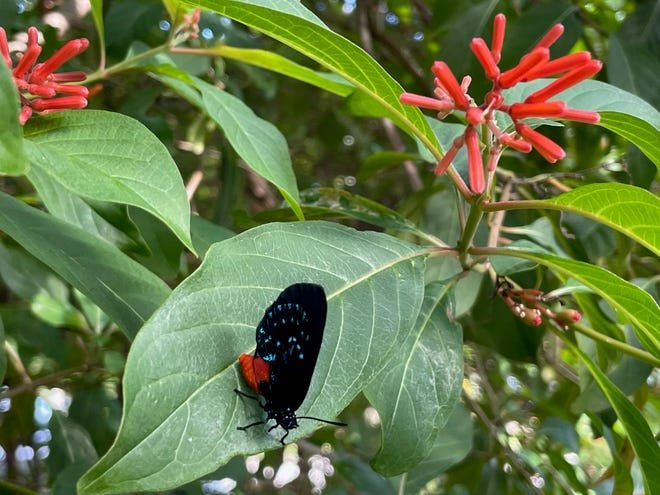
New plantings at Palm Beach park, marina should be applauded
The native plants used at the new Lake Drive Park and Town Marina will be a terrific addition to Palm Beach’s landscape.
Beds of coontie, silver buttonwood, sea grape, firebush, wild coffee, milkweed, muhly grass and orange geiger trees add beauty and diversity while providing essential food and habitat for birds and pollinators. This is the basis of a truly sustainable landscape. These plantings also underscore the need for proper understanding of plants’ growth habits and the difference between native and non-native species.

We saved a native butterfly; now let's save our soils
I was delighted on a recent visit to Pan’s Garden at the Preservation Foundation of Palm Beach to see a plethora of beautiful atala butterflies fluttering about.
Considering the atala was listed as “presumed extinct” as recently as 1968, it has made a remarkable comeback through the diligent efforts of dedicated naturalists and concerned citizens to re-establish its host plant, the coontie. The stunning blue/black atala butterfly was the most conspicuous insect in South Florida in 1888 when its only host plant, the native cycad coontie (Zamia integrifolia), was also in great abundance.
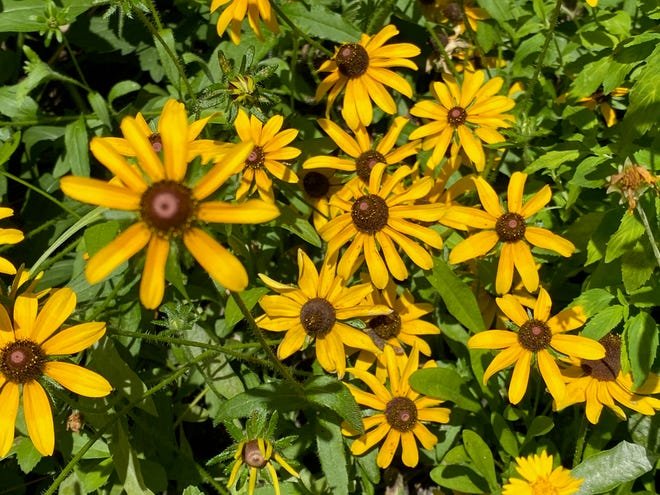
Spring color and environmental respect
This will be my last article for the season, so I thought I’d go over some of the important issues we’ve covered. But first, let’s celebrate the fabulous colors of spring in Florida.
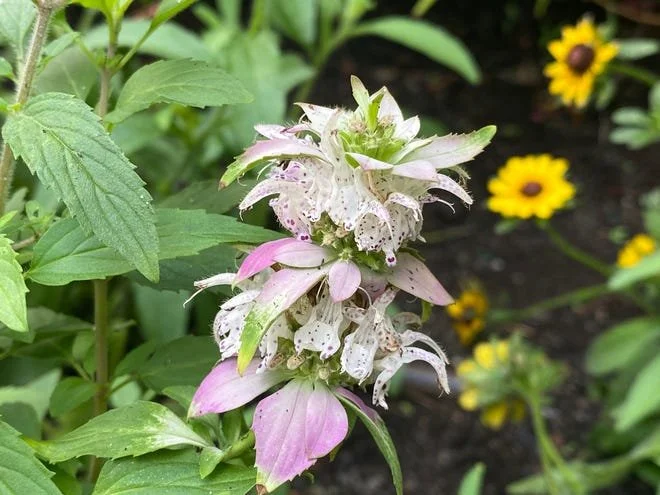
Follow your nose to these wonderful-smelling natives
It’s wonderful to smell a garden before you actually see it. And there are so many beautiful, native fragrant plants to include in any landscape.
Olfaction is the oldest and considered the strongest of our senses; its many functions include detecting danger and pheromones as well as imparting sensual pleasure and enhancing our sense of taste. It is one of the important means by which our environment communicates with us.
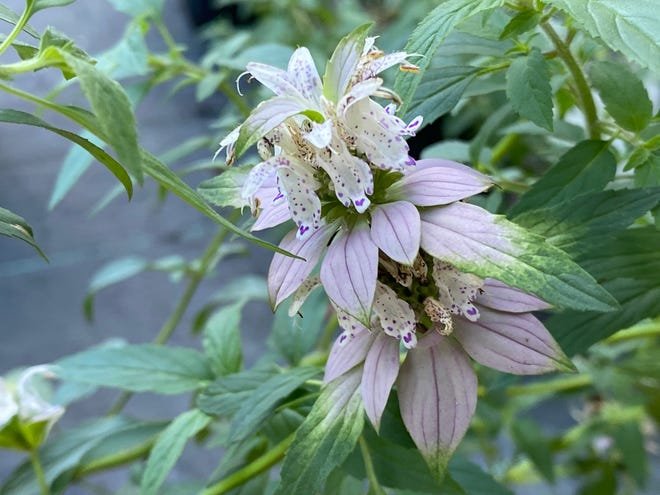
What's in a name? In gardening, it's important
I love getting up early and heading out to the garden to see what’s happening. Something’s always going on.
Palm warblers, mockingbirds, cardinals and grackles hop around the grass poking for grubs and insects. This is one of the bonuses of not using chemicals: birds do the work for me.
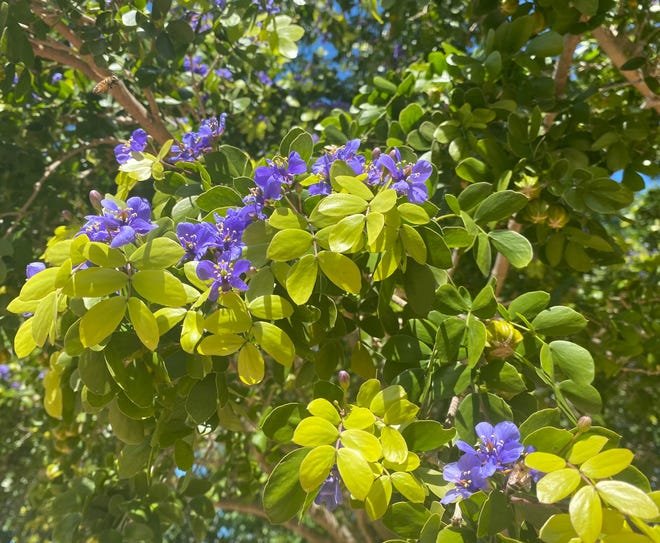
Make sure plants in your yard perpetuate native ecosystem
Back in fifth grade, most of us learned that plants take carbon from the air, and through the process of photosynthesis, convert it with sunlight into sugars and oxygen, enabling us all to survive.
Trees are carbon sinks, storing carbon absorbed from the atmosphere into their tissues where it remains for the duration of their lifespans, up to hundreds of years. Global forests, wetlands, grasslands and coastal habitats all sequester carbon, regulate global temperatures, recharge groundwater, anchor soil and act as flood barriers.
Welcome butterflies to your garden, and respect palms, too
We saw our first zebra longwing, or zebra heliconian (Heliconius charithonia), in the garden last week.
This distinctive butterfly with its long black-and-yellow striped wings was designated Florida’s state butterfly in 1996. Zebra longwings are the only butterflies known to eat both nectar and pollen, which probably accounts for their long lifespan: they can live up to several months, rather than the few weeks of most butterflies. The beautiful white caterpillar with its black spikes arranged in triplicate across the back is especially fun to find.
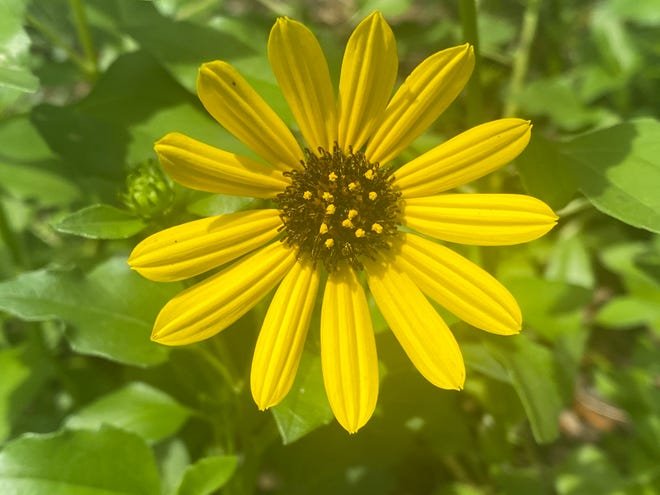
Gardening guru P. Allen Smith shows how French style builds great U.S. landscapes
The Society of the Four Arts, in conjunction with the Garden Club of Palm Beach, recently hosted P. Allen Smith’s interesting and informative lecture about his Moss Mountain Farm in Arkansas.
This ferme ornée, or ornamental farm, has its roots in the natural landscapes of the English era of Capability Brown, when the formal vernacular of the William and Mary period was replaced with the curvilinear features of the pastoral movement. Quite simply, the essence of ferme ornée is the marriage of functionality and beauty: combining farming techniques of vegetable and livestock production with the beauty of pastoral gardens..
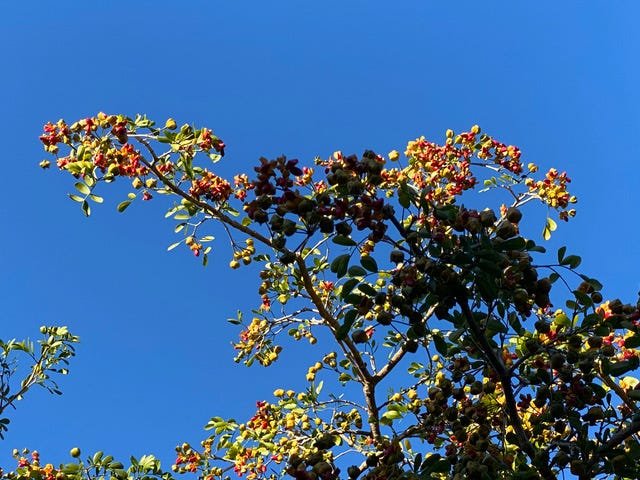
We need to realign with nature, and it starts in our backyards
Doug Tallamy, a professor of entomology at the University of Delaware, gave another terrific talk last week at the Preservation Foundation, and his message was one we could all benefit from hearing.
In his first book, Bringing Nature Home (2007), Tallamy wrote about the importance of native plants in providing the nourishment essential to sustaining environments suitable for the insects, birds and wildlife we need in our world.
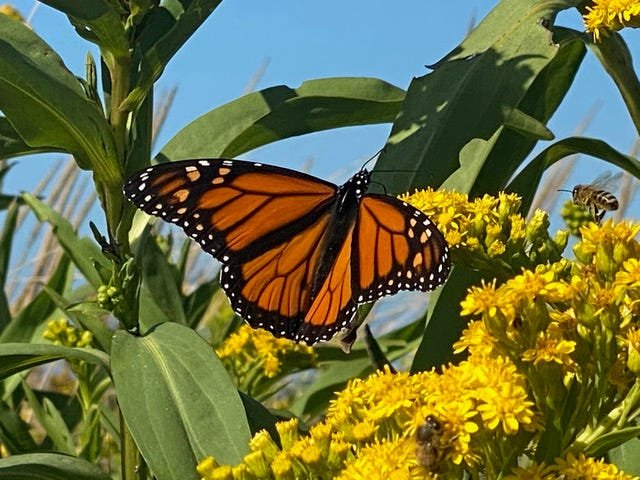
Preservation Foundation botanical art exhibit a reminder of Florida's native beauty
Botanical subjects have long inspired artists, with illustrations of plants dating back to 1465 BC in ancient Egypt.
Specific plants used for medicinal purposes were compiled into "herbals" as early as 512 AD. John Gerard’s 1,484-page illustrated Herbal, or Generall Historie of Plantes, was first published in 1597 and was standard medicinal plant reference for more than a century.
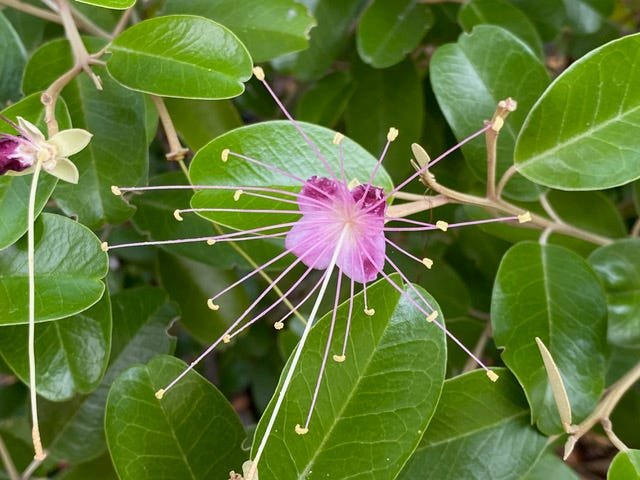
Try these instead of the same ol’ plants
While we need to add natives to our landscapes to promote sustainable and ecologically healthy ecosystems, we also need to understand the importance of diversity.
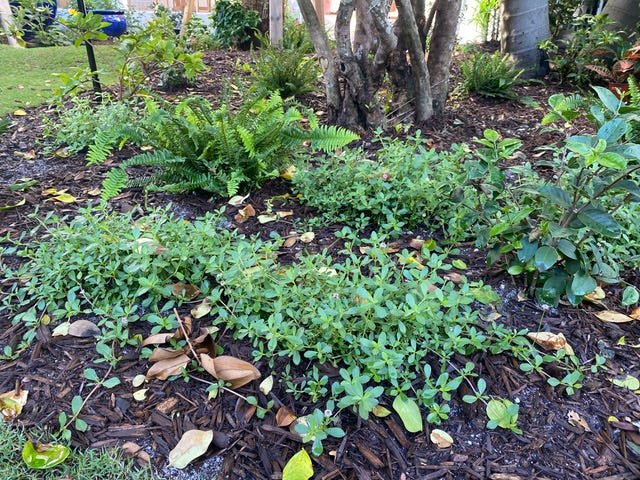
How to turn a plot of sand into a magical place
When the new Via Flagler by The Breakers opened off Royal Poinciana this fall, the construction staging area on Sunset Avenue still contained port-o-potties, Dumpsters and the detritus left by cranes, trucks, backhoes and other equipment used for the project. It wasn’t pretty.
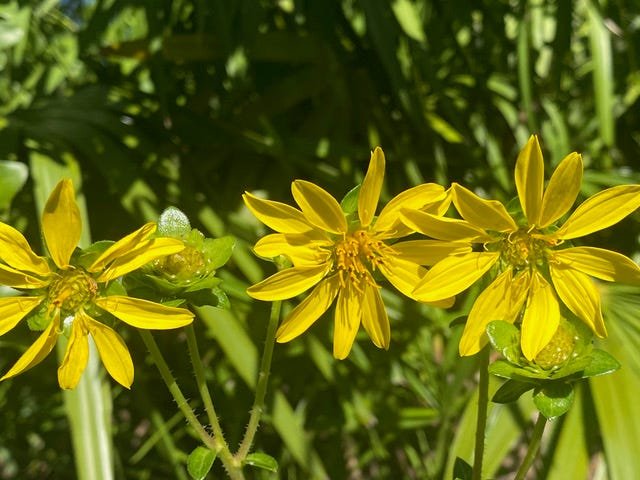
Pan's Garden a 'treasure trove' of native plants
We are so lucky in Palm Beach to have a wealth of diverse plant material from which to choose for all our garden and landscaping needs. Why is it then that landscapers consistently plant the same four species in every situation?
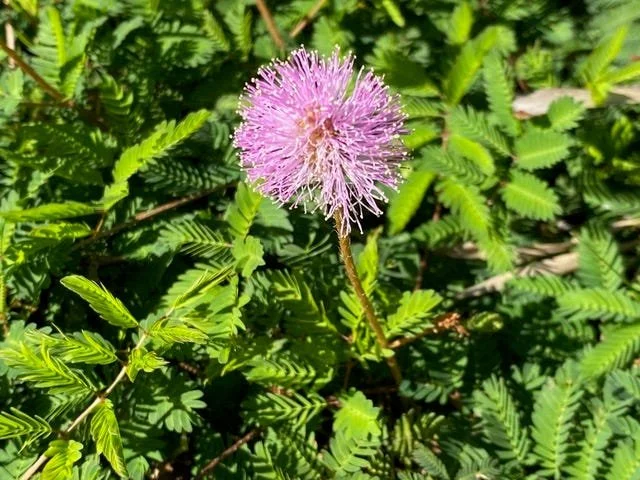
Green gardening: Let's not poison paradise
The Age of COVID has brought about a dramatic Co2 reduction in the atmosphere as less engine exhaust from auto, air, and water travel translates to less pollution in our sky, rivers and waterways.
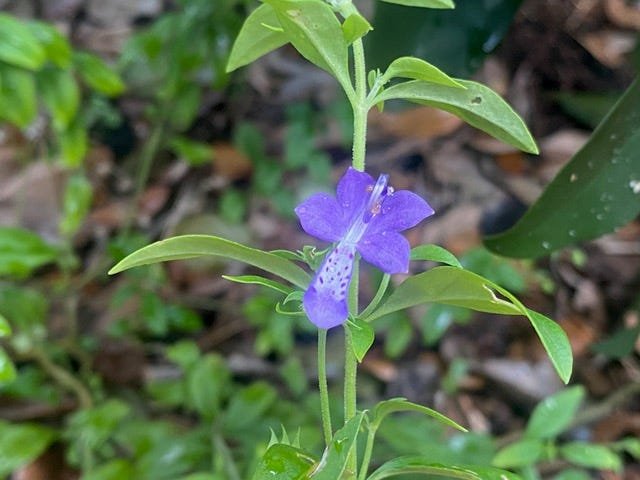
How does your garden grow when left alone for months?
Lots of us are returning to the island after a summer away. If your landscape has been left unattended, there’s usually a lot of work to be done.
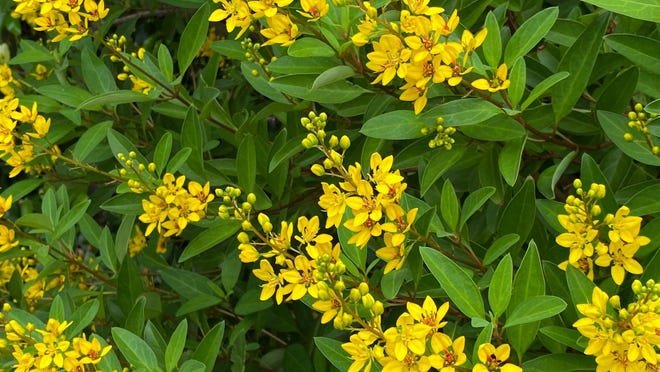
Color your world with eco-friendly natives
Genetically modified crops or organisms are confusing, so I thought I’d try to clarify a few of the basic tenets.
GMOs are the result of transferring DNA into a plant to alter its gene code, usually for herbicide resistance. Most genetically modified food crops are altered to withstand applications of the systemic herbicide glyphosate, the predominant ingredient in Roundup.
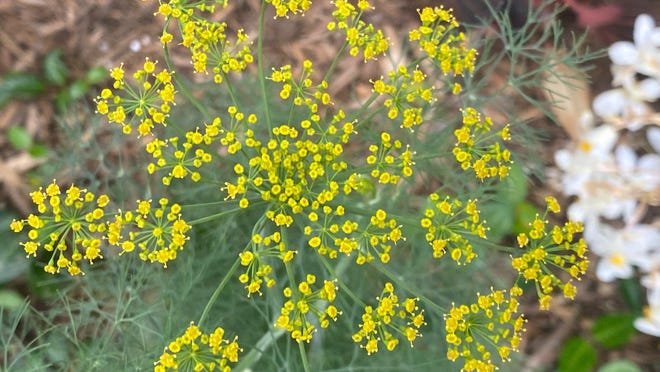
Palm Beach gardens: Herbs are the perfect remedy
I realize that many are quarantined in apartments or condos with little access to gardens or landscapes. But if you have a balcony or even a sunny windowsill, you can still grow herbs. I am gardenless at the moment, but did find a small plot of ground to plant several of my favorite herbs, and the result has been wonderful..
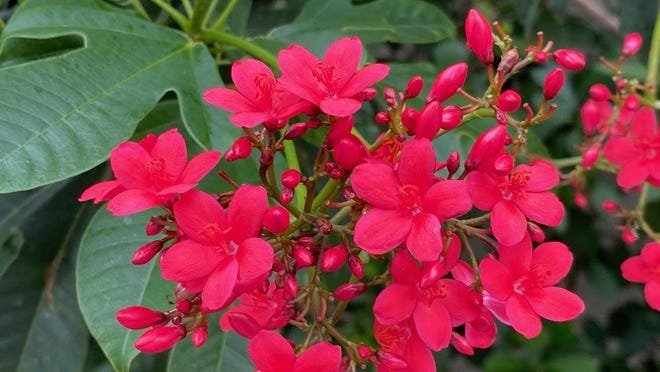
Green gardening: A backyard bursting with color
In these unsettled times, there is one certainty beyond death, taxes, and coronovirus — and that would be gardening.

The sweet smell of time well spent
With the novel coronavirus disrupting much of daily life, it’s good to have a back-up plan. If you’re forced to stay home, how about doing some gardening? It’s great exercise, gives you a wonderful chance to experience nature, and you can actually challenge your mind a bit by planning for specific variations within your landscape parameters.
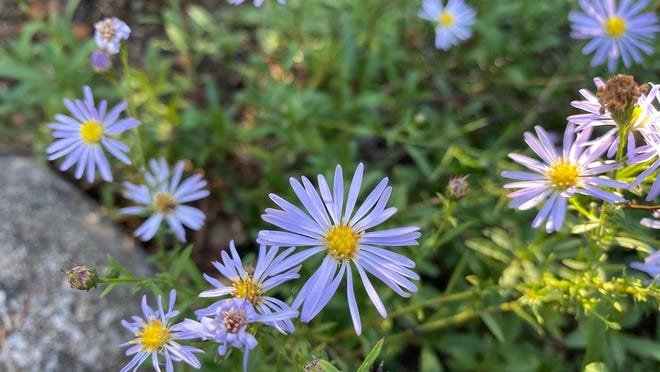
It’s time to make room for butterflies
Spring is around the corner and it’s time to start looking for butterflies in your gardens. If you haven’t seen any lately, maybe you need to rethink what you have planted. Butterflies need host plants on which to lay their eggs and feed their larvae (caterpillars), and the adults need nectar plants.
